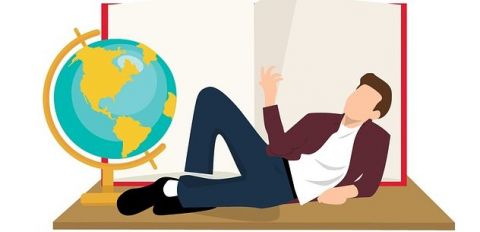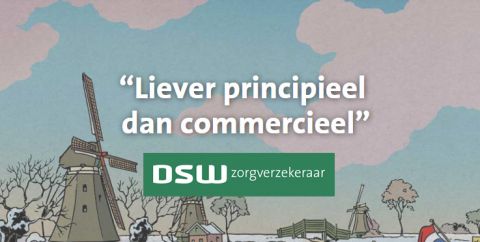This chapter is about the Short Inventory of Minor Lapses (SIML), as self-report that estimates an individuals’ proneness to AM slips and lapses.
It is a 15-item questionnaire, as they are listed below:
- How often do you forget to say something you were going to mention?
- How often do you have the feeling that you should be doing something, either now or later, but you can’t remember what it was?
- How often do you find your mind continuing to dwell upon something that you would prefer not to think about?
- How often do you can’t remember what you have just done or where you have just been?
- How often do you leave some necessary step out of the task?
- How often do you find that you can’t immediately recall the name of a familiar person, place or object?
- How often do you think you’re paying attention to something when you’re actually not?
- How often do you have the ‘what-am-I-here-for’ feeling when you find you have forgotten what you came to do?
- How often do you find yourself repeating something you’ve already done or carrying out some unnecessary action?
- How often do you find you’ve forgotten to do something you intended to do?
- How often do you decide to do something and then find yourself side-tracked into doing something different?
- How often do you find yourself searching for something that you’ve just put down or are still carrying around with you?
- How often do you forget to do something that you were going to do after dealing with an unexpected interruption?
- How often do you find your mind wandering when you are doing something that needs your concentration?
- How often do you make errors in which you do the right actions but in relation to the wrong objects?
The most commonly occurring slips were: failing to recall a name, forgetting to say something, forgetting intentions and mind wandering.
How can age affect slips?
There are two explanations of the finding that self-reported incidents of minor slips and lapses diminished with age:
- The Activity Hypothesis: Old people are less active, and therefore have fewer opportunities to make AM errors.
- The Compensation Hypothesis: The first version of the hypothesis is that old people are aware of their diminished cognitive competence, and rely more on memory aids and reminders and therefor suffer less lapses. The second version (dread variant) is that older people might interpret slips and lapses as symptoms of dementia/Alzheimer and therefor spend more time and attention in their day-to-day performance.
This still doesn’t explain the big difference in results between ‘young’ (17-29) and ‘middle aged’ (30-49). Researches try to explain this by stating that same older people tend to ‘forget that they forgot’ or try to blame the difference on the way the questionnaire is build.
Can stress-vulnerability lead to cognitive failures?
A high level of cognitive failures and the number and degree of psychiatric symptoms experienced during or immediately following a period of real-life stress, is one of the most important findings of the questionnaire. Donald Broadbent argued that high rates of AM slips can lead to increased vulnerability to real-life stress.
To test this hypothesis, they gave woman who had breast cancer, the SIML and the Goldberg’s General Health Questionnaire. Results showed that the SIML correlated significantly with the number of psychiatric symptoms. They also found that depressed patients had higher SIML scores. On page 34 of the book (a life in error), you can find the list of all the predictors (e.g. radiotherapy, pain in scar).
The findings provide strong support for the stress-vulnerability hypothesis. One explanation for the underlying mechanism is that people differ characteristically in the way they develop. These differences lie in the way people cope with stress. For example, people who are error-prone use more resource-intensive strategies. It seems like stress is not the thing that induces the high rate of cognitive failure, but the way people deal with this stress.
Voor volledige toegang tot deze pagina kan je inloggen
Inloggen (als je al bij JoHo bent aangesloten)
Aansluiten (voor online toegang tot alle webpagina's)
Hoe het werkt
- Om alle online toegang te krijgen, kun je je aansluiten bij JoHo (JoHo Membership + Online Toegang)
- vervolgens ontvang je de link naar je online account en heb je online toegang
Aanmelden bij JoHo

- Study guide with A Life in Error: From Little Slips to Big Disasters by Reason
- What are the nature and varieties of human error? - Chapter 1
- Plans lead to Actions and Consequences - Chapter 2
- Skill-based, Rule-based and Knowledge-based performances - Chapter 3
- Slips and Lapses when Absent-Minded - Chapter 4
- Individual Differences - Chapter 5
- SIML in the Courtroom - Chapter 6
- The New Freudian Slip - Chapter 7
- Failures in planning - Chapter 8
- Violations - Chapter 9
- Organizational Accidents - Chapter 10
- Resisting Change in Organizational Culture - Chapter 11
- Medical Error - Chapter 12
- Disclosing Error - Chapter 13
- Looking back - Chapter 14
- 1 van 2
- volgende ›
Chapters
Teksten & Informatie
JoHo 'chapter 'pagina
Wat vind je op een JoHo 'chapter' pagina?
- JoHo chapters zijn tekstblokken en hoofdstukken rond een specifieke vraag of een deelonderwerp
Crossroad: volgen
- Via een beperkt aantal geselecteerde webpagina's kan je verder reizen op de JoHo website
Crossroad: kiezen
- Via alle aan het chapter verbonden webpagina's kan je verder lezen in een volgend hoofdstuk of tekstonderdeel.
Footprints: bewaren
- Je kunt deze pagina bewaren in je persoonlijke lijsten zoals: je eigen paginabundel, je to-do-list, je checklist of bijvoorbeeld je meeneem(pack)lijst. Je vindt jouw persoonlijke lijsten onderaan vrijwel elke webpagina of op je userpage
- Dit is een service voor JoHo donateurs en abonnees.
Abonnement: nemen
- Hier kun je naar de pagina om je aan te sluiten bij JoHo, JoHo te steunen en zelf en volledig gebruik te kunnen maken van alle teksten en tools.
Abonnement: checken
- Hier vind je wat jouw status is als JoHo donateur of abonnee
Prints: maken
- Dit is een service voor wie bij JoHo is aangesloten. Wil je een tekst overzichtelijk printen, gebruik dan deze knop.




















